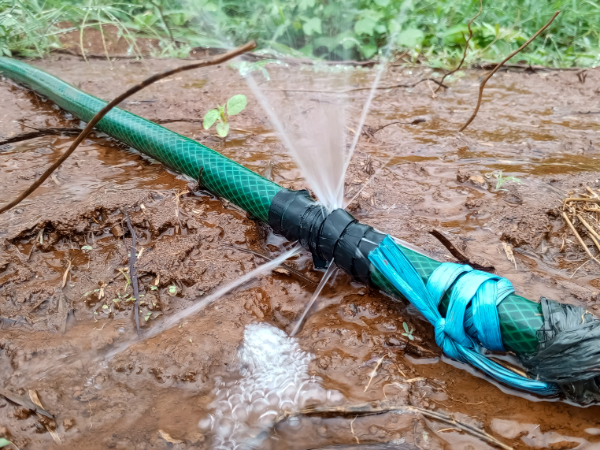
Contamination in recycling and trash might seem like a minor issue, but its consequences reach far and wide, impacting our environment and efforts toward sustainability. When non-recyclable items, like this leaky hose, end up in the recycling bin, they contaminate the entire batch of recyclables. This can render entire loads unsuitable for recycling, forcing them to be sent to landfills instead. Turns out, some recycling wishes can’t come true.
Not only does this waste valuable resources, but it also undermines the efforts put into recycling and contributes to overflowing landfills. Contamination also poses risks to recycling facilities and workers. Hazardous materials, such as chemicals or sharp objects, can cause injuries or damage to equipment during the sorting process. These incidents not only endanger the safety of workers but also incur additional costs for repairs.
Our actions play an important role in preventing contamination. Taking the time to properly sort and clean recyclables before disposal can significantly reduce the risk of contamination. Additionally, being mindful of what goes into recycling bins and waste cans can help minimize contamination at the source. Please be mindful when you recycle and contact your local solid waste authority to make sure you are recycling correctly. For more on preventing contamination, read Can I Recycle This?
Image credit: Aniful Izza | iStock | Getty Images Plus
